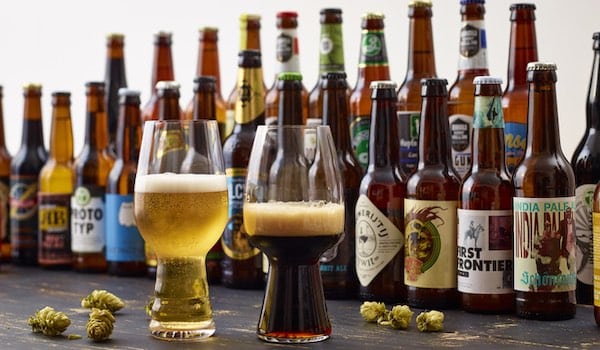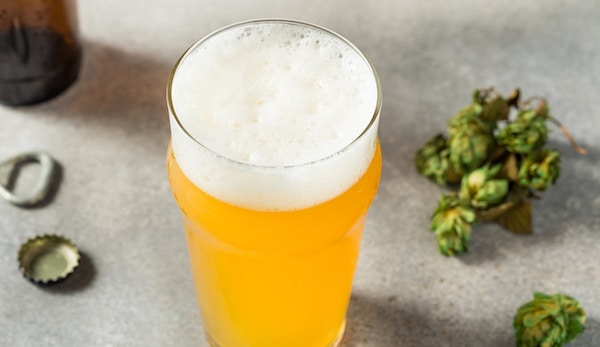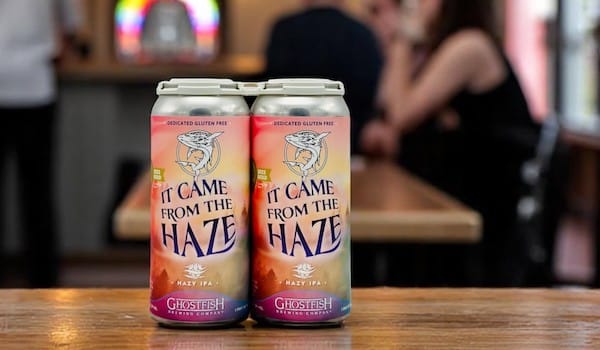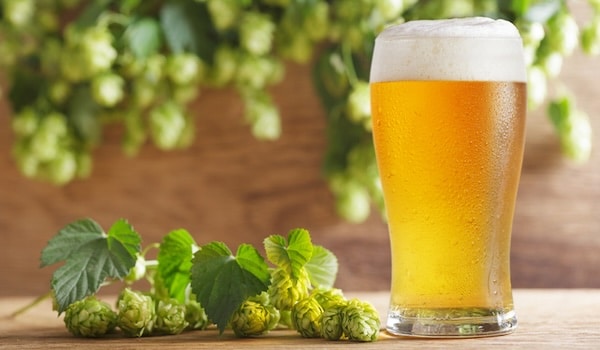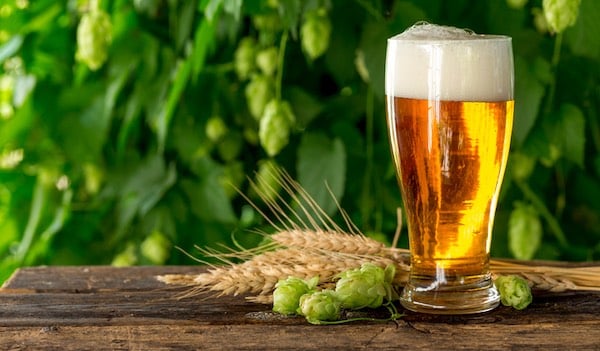
In This Article
Introduction to Organic Beer
Craft beer culture has always been loaded with various ideals and values. Brewery independence has consistently received the most attention from both fans and industry experts. Rightly so, as the impetus for the “craft” movement was to get away from the ubiquitous products from larger corporations and move towards locally-made artisanal beers.
The craft signifier can often be packaged with other qualities that lend credibility to the product, and one of the most important is the “organic” label. Even with 6,000 producers in North America and countless others across the globe, this type of beer can be surprisingly hard to come by.
It’s challenging to base a business solely on producing strictly organic beers, so not every market has a dedicated organic brewery. Still, there are more than a few dedicated organic breweries out there, with even more craft breweries making 100% organic beers either as a one-off or a flagship offering.
So while you might have to put a little effort into finding them, you’re not short of options! You’ll still need to consider a few things before starting a search. Here’s everything you need to know about organic beer:
What is Organic Beer?
It seems like a straightforward question, and this might be the taste case where the answer is as straightforward as promised. It all leads back to the ingredients and how they’re produced and processed. Organic farming practices prioritize natural methods by avoiding synthetic chemicals, fertilizers, certain pesticides, and genetically modified organisms (GMOs). The best marker of an organic beer is one that meets the exact definition granted by the USDA to compliant food producers.
Organic producers are also known to incorporate sustainable practices for growing ingredients or brewing beer, making the category a haven for eco-conscious drinkers.
How to Know if Beer is Organic
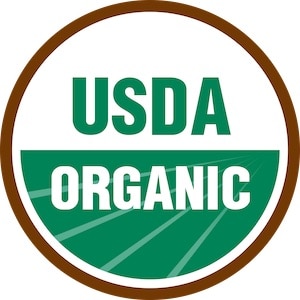
Beers that meet the USDA definition of “organic” are often labeled with the “USDA Organic” green and white logo. This is by far the most useful indicator for what’s organic. There are still some breweries, notably foreign producers, that will not have this marker for their organic beers.
Many breweries source many or most of their ingredients from organic producers, even if they’re not completely USDA-certified. Still, you’ll need to dig deep into label descriptions or brewery websites to verify this information. The USDA label is the most trustworthy marker of an organic product, given the financial penalties associated with using it while being noncompliant.
Is Organic Beer Healthier?
The same benefits of consuming organic food could theoretically be applied to opting for organic beer over a non-organic counterpart. This is a sticky proposition, as there are health implications surrounding alcohol that would have to be considered while weighing the pros and cons. Numerous studies have shown that reducing exposure to harmful toxins and chemicals can be achieved by consuming foods and beverages made with organic ingredients. That’s an objectively positive outcome of opting for organic beer, regardless of the health impacts of alcohol.
Here are a few of the benefits of organic products:
- Reduced exposure to toxins because organic foods are grown without synthetic pesticides.
- Higher nutrient content has been found in organic produce. Ingredients like barley or hops are grown in healthier soil with cleaner water.
- Organic producers invariably employ more environmentally conscious methods, including efficient water use and the avoidance of harmful chemicals.
- These producers tend to be smaller entities than the larger corporations that use non-organic processes. This results in a positive economic impact on farming communities.
Beer may not be considered a health product, but examining the benefits of organic products as a whole can be a valuable motivator for seeking out organic beer. In any case, it can’t hurt to grab the beer with that green and white USDA label!
Organic Breweries
This list comprises breweries that have established a reputation for brewing exceptional organic beer. While not every one of these companies is 100% organic, this process will be central to their output. It’s essential to review labels or their websites to determine which of their offerings aligns with your expectations. There are plenty of fabulous organic beers available, but here are a few of the best places to start!
Peak Organic Brewing Co.
Peak’s operation out of Portland (Maine) has been upping the stakes with their relentless approach to crafting ales and lagers that match up with their non-organic counterparts. Even in a hyper-competitive market like New England, Peak has been making moves to become one of the most widely available organic craft breweries.
LaGrow Organic Beer Company
This Chicago-based brewery’s USDA-certified IPA has been on tap for almost a decade. LaGrow holds the distinction of being the city’s first organic brewery. The family-run outfit has been winning the race with a slow-and-steady approach. It has seen new offerings, such as Imperial Stout and APA, raise the bar.
Protector Brewing
This veteran-owned outfit is brewing some of San Diego’s best craft beers, not to mention organic beers. The abrasive brand doesn’t exactly scream “organic,” but each beer is USDA-certified and produced using EPA-approved methods. Their Miramar tasting room and production facility is a worthwhile stop on any trip to SoCal’s beer mecca. Their downtown taproom is only a short walk from PetCo Park and the Gaslamp District.
Big Country Organic Brewing Co
Organic food isn’t exactly synonymous with Texas, but one of the best Texas breweries happens to offer USDA-certified classics. These include their Mexican-style lager and seltzers. Their footprint is relocating to East Austin with a new brewpub, but their cans, featuring the green and white icon, are found almost everywhere in the Lone Star State.
Samuel Smith (UK)
True OG beer nerds will recognize these ornate bottles from their early days of scouring liquor store shelves for delicious beer. Still, many won’t associate this traditional British brewery with the organic movement. The majority of Samuel Smith’s English-style pale ales, stouts, and porters are produced with entirely organic ingredients. Planning a trip to the UK? They have brewery-run pubs in London, Carlisle, Edinburgh, Cardiff, and other locations.
5 of the Best Organic Beers
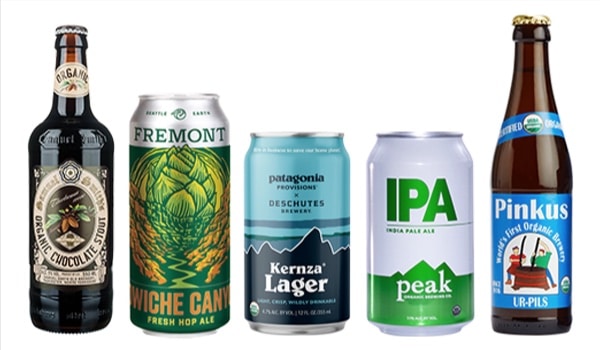
Many local craft breweries will produce “one-off” organic beers as a nod to the movement and to appeal to their customer base. But this is not always within the scope of their business model.
Samuel Smith’s Organic Chocolate Stout
For decades, discernible drinkers have been opting for this delectable stout for its balanced sweetness and bitterness. It’s perfect for sharing or sipping over the course of an evening, and entirely organic!
Fremont Brewing – Cowiche Canyon
The hop harvest is when breweries focus on how they source and produce their beers. These “fresh hops” are harvested and immediately used in the production of pale ales and other styles that showcase the most pronounced and earthy flavors possible. Seattle’s Fremont Brewing takes the same care in sourcing entirely organic hops (and other ingredients) for this dynamic harvest ale.
Patagonia Provisions – Kernza Lager
One of the world’s most iconic clothing brands has started brewing delicious and organic beers. These delicious brews are perfect for post-hike refreshment or campfire hangouts.
Peak Brewing IPA
This traditional American IPA might not be the sexiest 6-pack on the shelf, but it is by far the most dependable organic hop-bomb you’ll find.
Pinkus Organic Ur-Pilsner
European breweries haven’t put the same effort into organic products as their American counterparts. And yet, this centuries-old family-run operation in Münster brews one of the world’s best pilsners, regardless of whether or not it’s organic.


